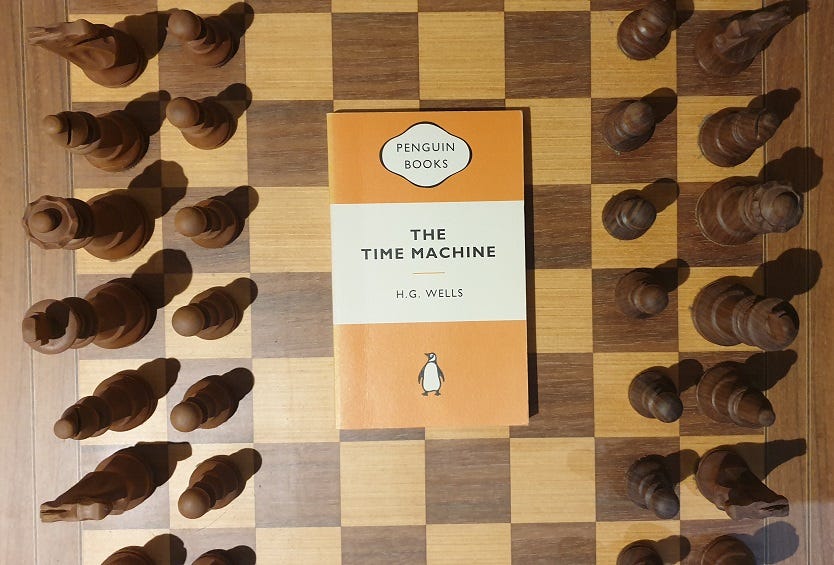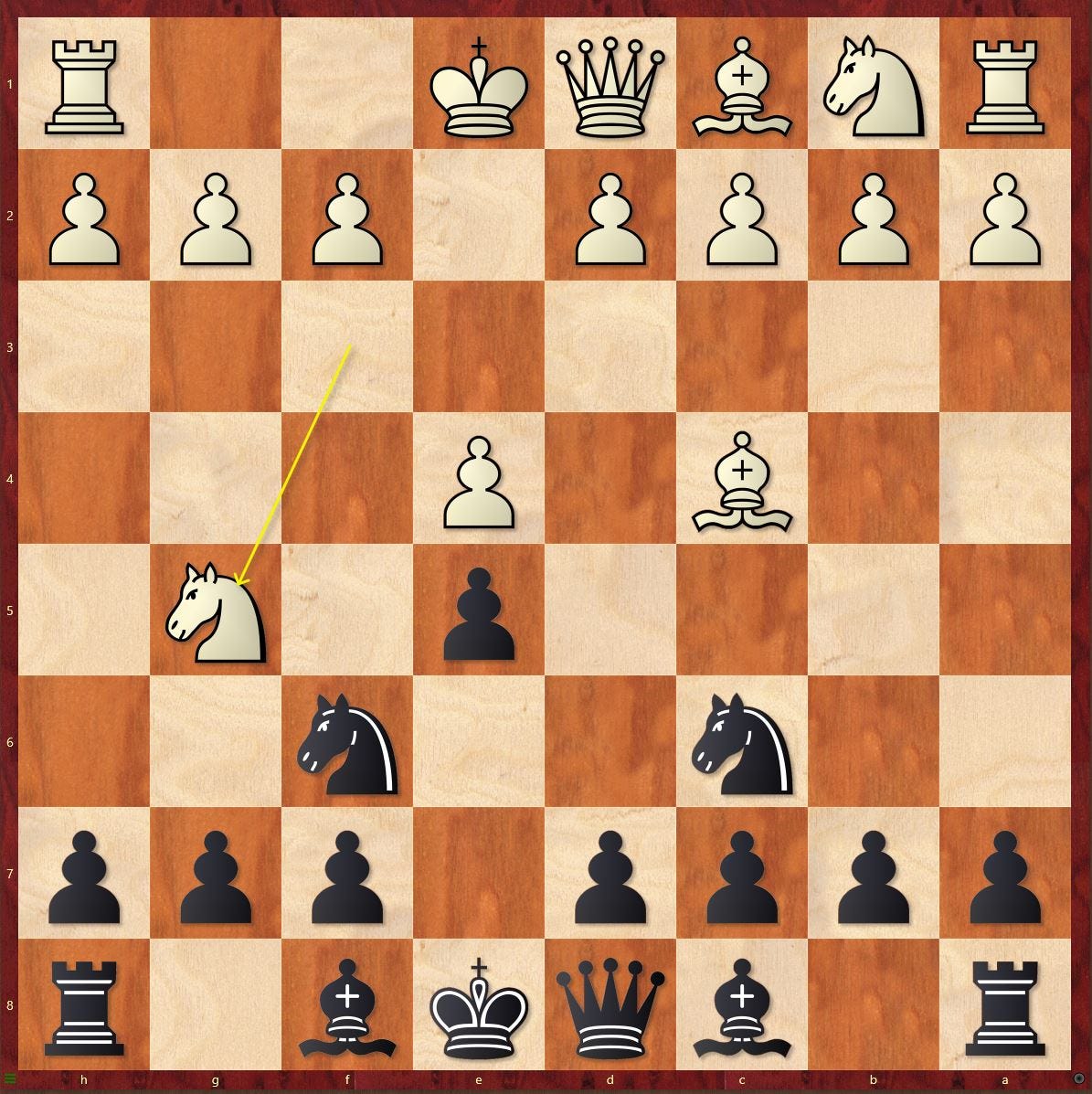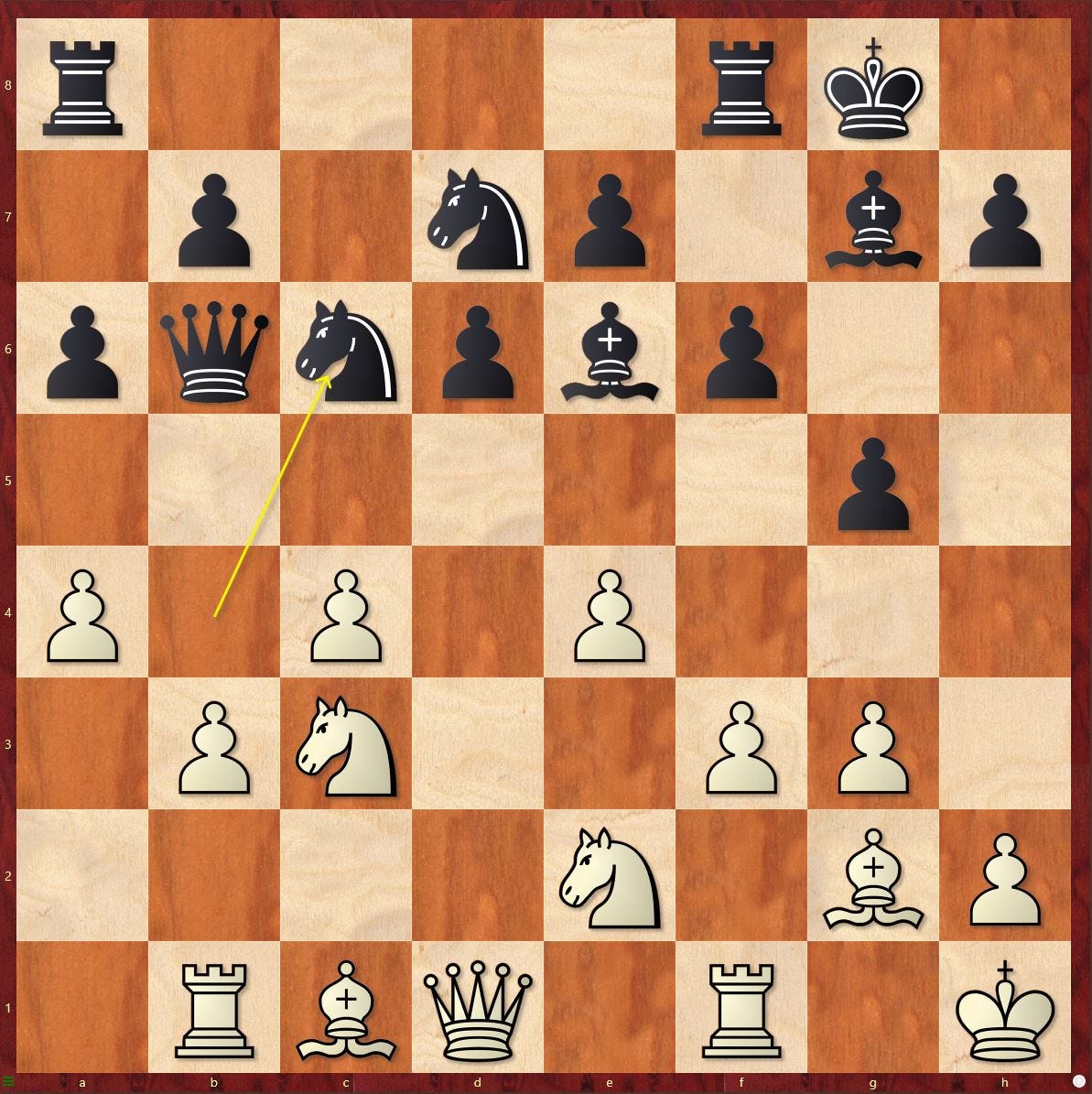Being 'Process-Oriented': What It Really Means
Why I look back on one of my biggest achievements in chess with shame and regret
On Friday, I was streaming online blitz for the first time, playing in the Japan Chess Federation’s monthly tournament on Chess.com.1
In Round 3, my opponent played 4.Ng5 in the Italian.
I’ve been a Sicilian main player for the large part of these 20 years, but I’ve started playing, or working on, 1…e5 in recent months. When this 4.Ng5 appeared, I was a little worried as sharp lines you don’t know well enough yet are especially hard to navigate in fast play, let alone while streaming and relaying your thoughts to viewers!
As I somewhat feared, my opponent went into one of the sharper variations and played a move I’d never seen before: 19.Be3.
Using over 1 minute of my remaining 2.5 (it was 3+2), I played 19…Qh4!, the best move, but after 20.h3? (20.f4), failed to find the winning line: 21…Nf3+! 22.gxf3 Rf6!
Well, this is too difficult to expect to find in a blitz game. I ended up immediately worse, and lost this game (and two more), but the important point was that I’m playing openings I’m in the relatively early stages of learning, even when the stakes are higher than just a casual online game (1. tournament game, 2. on stream).
In the stream, I remarked:
“You know, with practicing new openings, you might think it’s better to do it in the blitz/rapid pools or training games rather than tournaments, but just practicing it, in any form, is the essential thing. Losing is inevitable. By playing it in a fully concentrated state, when the stakes are high, even if it’s a blitz game, the moves you play thinking they’re the best, teach you the most. So by playing your new openings—like me tonight, I lost games playing these new openings—next time, because you played these games, you’ll be extra motivated to review them and improve your play next time it comes up.”
And the more you play, whether it be winning or losing, the more you learn and improve that area, so it’s better just to take the plunge and start earlier. You’ll never feel completely ready.
As I was trying to get to sleep later that night, it hit me—through my words and actions, I’m actually being process-oriented. I could have played the good old Sicilian instead of 1…e5, and maybe my chances of doing better in these games, in this tournament, would be higher than with 1…e5—but it would only delay my improving at 1…e5, and potentially expanding my horizons in chess. And I wasn’t bothered at all about playing and performing rather poorly in the tournament, even in front of viewers, because I knew I was putting my long-term potential in chess over maximising my chances of performing the best on that night.
And this realisation struck me because I immediately thought of several moments through my chess life where I’d taken results over process—while, frankly, I couldn’t immediately think of cases where I’d done the opposite, prioritising the process.
The game that got me the IM title
After attaining the FM title by surpassing 2300 in 2010, I was struggling to consistently perform at, and approach, IM/2400 level.
Then, in 2014, I had a great run of form. In April, rated 2338, I gained 29 points in the Doeberl Cup2, scoring my second IM norm, and continued my good form in the Sydney International Open. After 7 rounds, I was a few rating points away from 2400 and one good result away from my third IM norm. Thus, a draw against former world #15, GM Liviu-Dieter Nisipeanu in Round 8 would mean the IM title.
After 20 moves, I had a sizeable advantage as White, and Liviu-Dieter offered me a draw after 20…Nc6.
I can’t remember how long I thought for, and the exact thoughts I had.
But I accepted the offer.
Achieving the IM and GM titles had been a dream of mine since I was a kid, and the temptation to immediately achieve the former was too strong. I knew that White was much better here (21.Nd5 or 21.f4, and boy it looks great), but my fears and doubts were too strong—what if I play for a win and end up losing? What if I then also lose in Round 9, and don’t get another chance at the title for a while?
I wanted to achieve the title immediately, and in that moment, I couldn’t fathom the poison and risk in accepting the offer. I may have even had a decent shot at a GM norm if I’d won this game. I seem to remember a couple of people I look up to asking me why I accepted the offer after the game, and Liviu-Dieter also seemed surprised. After the game, I remember telling him that the draw meant I’d achieved the IM title, and kind soul that he is, he congratulated me, but I could sense he was a little nonplussed.
At the time, I was pleased with myself. In fact, I had a good chance to win the next game and achieve my first GM norm on top of the IM title, but I only managed to draw. Oh well, I’m playing so well, more chances will come soon. I’d finally become an IM after playing chess for over 15 years—I should be happy...right?
Now, nearly 10 years later, I remember this particular game, where I achieved the IM title, with shame and regret rather than pride and happiness.
How could I not have played in on that position?
If I’m not playing on in that position to win, even if it’s against a strong grandmaster, what hope do I have of beating them in equal contests?
Through most of my 20’s, I was clearly insecure, low in confidence and self-esteem. That’s why I took the draw—I couldn’t handle the fear of playing on and failing, because achieving the title, at the time, would make me feel better about myself. How I did in chess reflected, so I felt at the time, how much worth I had as a person.
What I couldn’t realise at the time, was that playing on and trying to win, may have had many more positive effects on myself as a chessplayer and person in the long run. Every time you take the easy way, you’re telling yourself that’s the best you can do.
For me, achieving the milestone of IM in such a manner, lacking in self-belief, no doubt led to taking other regretful decisions in the future.
On being process-oriented over results-oriented
Here are a few things I’ve realised, reflecting on my past self and experiences:
Often, taking the most desirable outcome in the short term, for instant gratification, pushes your mid- and longer-term goals further away
It’s important to have goals and motivations other than extrinsic ones like ratings and titles, because if you’re only in it for results, you’ll be more easily disappointed, try to take shortcuts, avoid challenges and failures (or the risk) even if they’re necessary on the way to improvement, like I did back in 2014
Being process-oriented means thinking of your chess in a longer timeframe, years or even decades. If you’re conscious of where you want to be way down the track, not just in terms of what you want to achieve but how you achieve it, and what kind of qualities you want to have or develop, you won’t be as bothered by short-term fluctuations, and you’ll see losses as necessary steps rather than failures
When you’re focused on where you want to be eventually, rather than today or tomorrow, it’s easier to stick with hard things, because at some point, you won’t see improvement in short timespans—you’ll actually need to put in serious work
I see a lot of young players being happy drawing with higher-rated players, even in better positions, because they’re focused on the short-term result of gaining rating—but it’s much better to try and learn as much as possible from each game, especially when it comes to stronger players you want to be beating one day. To learn how to not only draw but beat them, you want to get as much practice as you can, in the earliest chances you get, of trying to beat them! Every time you take an easy draw, it will be harder and harder for you to decide to push to win
Sure, for professional players, who might need a solid draw to pay the bills, it’s not for me to say how they should play. But the vast majority of us are amateurs who are playing because we love the game, and find it fulfilling and rewarding. It’s good to be mindful of what kind of mindset you’re currently operating on.
Why do you play chess, and are you happy with how you currently approach the game?
I can see that the picture of what we were at an earlier age may not be recognisable and cannot, certainly, be pleasing to contemplate in later life. But we must not repudiate it, for it is a proof that we have really lived, that is in accordance with the laws of life and of the mind that we have, from the common elements of life, extracted something that transcends them.
—Marcel Proust, Within a Budding Grove (In Search of Lost Time, #2)
Though my win against then IM (now GM) Bobby Cheng was due to his phone ringing in the opening…thankfully, I also achieved my 4th IM norm a few months later so I wouldn’t feel like I only got there thanks to this win :)











I'm definitely a process oriented person. I've never accepted a draw offer if I think the position is better for me (or even equal but with fighting chances). And still, I would have accepted that draw offer 100 times out of 100 if it meant I sealed the IM title. You get your IM title, celebrate and then resume your no-draws policy.
Fantastic post Junta, it brings me no pride to say that I would have taken the draw too!